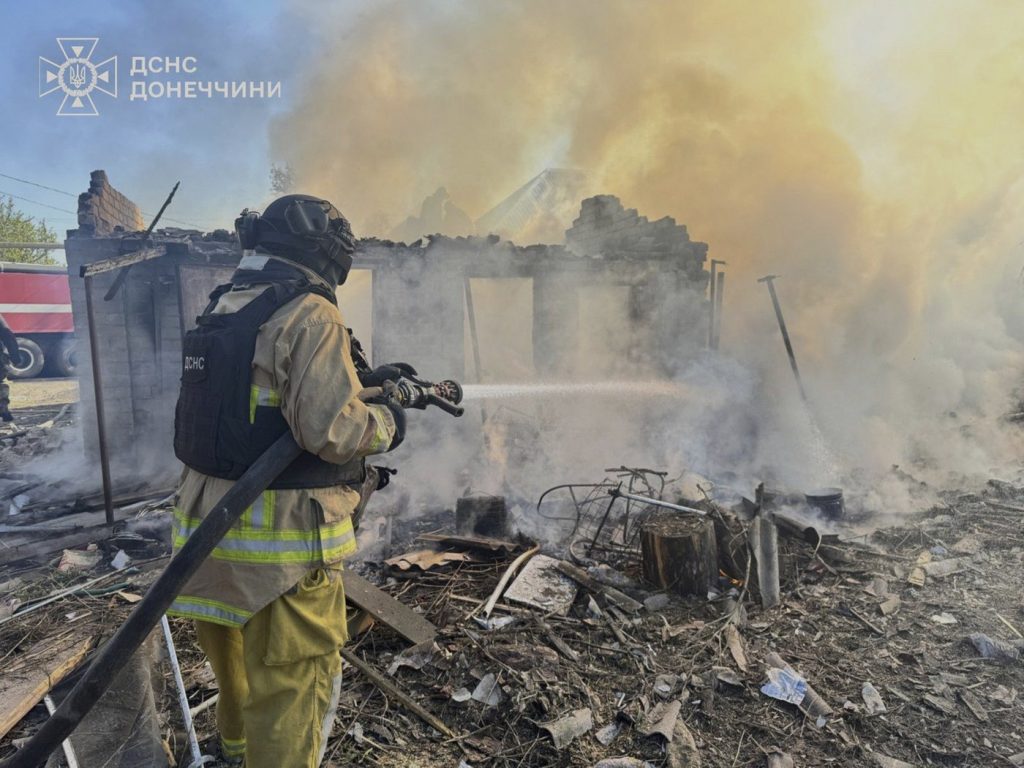KYIV, Ukraine (AP) — Ukraine and Russia engaged in long-range strikes against each other, as officials confirmed on Monday, amid ongoing uncertainty regarding a potential resolution to their protracted conflict. U.S. Secretary of State Marco Rubio deemed the upcoming week as "very critical" for diplomatic efforts, raising questions about the future of American involvement in the situation.
According to the Russian Defense Ministry, Russian forces intercepted 119 Ukrainian drones overnight, with most of these incidents occurring over Russia’s Bryansk border region. In response, air raid sirens were activated across Ukraine, but there were no immediate reports of casualties or damage resulting from these attacks.
The status of efforts by former U.S. President Donald Trump’s administration to quickly bring an end to the conflict remains ambiguous. Mistrust and deeply entrenched animosities between the two sides have clouded potential compromises. The ongoing war, now over three years old, has resulted in tens of thousands of deaths, with the United States needing to assess its continued engagement in the negotiations. Rubio implied that this week could define whether the U.S. chooses to persist in its diplomatic efforts.
Military assistance from the United States has been crucial in bolstering Ukraine's defense capabilities. However, further aid may be jeopardized if the Trump administration decides to withdraw from negotiations aimed at ending the conflict. Recently, Trump expressed skepticism regarding Russian President Vladimir Putin's sincerity in pursuing peace negotiations, especially given the ongoing missile strikes against civilian areas in Ukraine.
Despite the ongoing hostilities, Trump indicated on Friday that a negotiated settlement to the conflict could be "close." Meanwhile, Western European officials have accused Russia of delaying peace talks to enable its military, which maintains an advantage in strength and momentum on the battlefield, to seize additional territories in Ukraine.
On Sunday, Russian Foreign Minister Sergey Lavrov conversed with U.S. Secretary of State Marco Rubio about the war. The purpose of their discussion, as reported by the Russian Foreign Ministry, was to explore "consolidating the emerging prerequisites for starting negotiations," but no further specifics were disclosed. Notably, Russia has rejected U.S. proposals for an immediate and comprehensive 30-day ceasefire, imposing extensive conditions, while Ukraine has expressed its acceptance of such terms, as confirmed by Ukrainian President Volodymyr Zelenskyy.
A French diplomatic official indicated that Trump, Zelenskyy, and French President Emmanuel Macron have agreed to collaboratively pursue a "solid ceasefire" in the following days, viewing a truce as a necessary condition for peace negotiations that align with Ukraine’s and Europe’s interests.
Ukraine, however, has shown reluctance to concede any territory to Russia in exchange for peace—a condition that Washington has suggested may be essential for a resolution. A significant aspect of Ukraine's leverage in negotiations could stem from a potential deal with the U.S. that allows access to its valuable mineral resources. Discussions about a mineral wealth agreement have reportedly progressed, with both parties agreeing that previous American aid would not be considered in the terms of the new deal, according to Ukrainian Prime Minister Denys Shmyhal.
Shmyhal emphasized the necessity of clearly defined red lines, stating that the agreement must conform to Ukraine's Constitution, legislation, and European commitments, and must be ratified by Parliament. The conflict, ignited by Russia's full-scale invasion of Ukraine in February 2022, has significant international implications, further complicating negotiation efforts.
On Monday, President Putin acknowledged North Korea's support, asserting that thousands of troops had been sent to assist in the conflict against Ukraine, along with artillery supplies. Additionally, Iran has reportedly provided Russia with drones, while China has been supplying machinery and microelectronics for weapon production. As the U.S. and Europe continue to stand as Ukraine's major allies, the international dimension of the war intensifies the complexity of reaching a durable peace.











